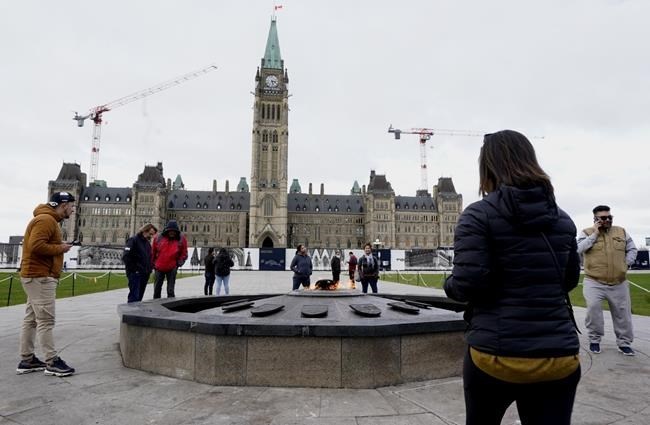OTTAWA — Canadians are missing out on major tourism revenue from Chinese visitors as Beijing leaves Canada off its list of approved travel destinations — a move that it is linking directly to Ottawa's recent focus on alleged foreign interference.
China lifted a pandemic ban on group tours to countries last week including the United States and Australia, but tourists are still barred from group visits to Canada.
The change announced by China's culture and tourism ministry on Aug. 10 has allowed Chinese and online travel agencies to book group tours and packages for Chinese tourists in 70 more countries all over the world.
Canada was quietly left off the list.
The snub is related to Canadian politicians' recent focus on allegations of foreign interference by Beijing, as first reported by CBC News.
"Lately, the Canadian side has repeatedly hyped up the so-called 'Chinese interference,'" the Chinese embassy in Ottawa said in a statement to The Canadian Press on Wednesday.
The embassy also expressed concern about an increase in "rampant and discriminatory anti-Asian acts and words" in Canada.
"The Chinese government attaches great importance to protecting the safety and legitimate rights of overseas Chinese citizens and wishes they can travel in a safe and friendly environment," the embassy said.
Allegations of foreign meddling in Canadian politics seized the federal government last spring following media reports earlier this year about claims China tried to interfere in the last two federal elections.
Opposition parties have been negotiating with the federal government for weeks to develop plans for a public inquiry into foreign interference after former governor general David Johnston resigned his short-lived position as a special rapporteur on the issue.
China has been gradually lifting restrictions on travel, and last week's announcement marked the third batch of countries to be reinstated as approved destinations.
The first batch, which included Thailand and Russia, was approved in January. In March, 40 more countries were added to the list, including France and Brazil.
Among other countries added last week are the United Kingdom, Japan and Germany.
Canada's omission is another blow to a tourism industry that endured a serious struggle during the pandemic, said Beth Potter, president of the Tourism Industry Association.
While domestic tourism has rebounded somewhat, international travellers who bring new money into the economy are still not back in full force.
China was one of Canada's fastest-growing tourism markets before the pandemic.
China's embassy gave the association a heads up that Canada was unlikely to be reinstated as an approved travel destination this month, Potter said, leaving businesses to focus on other international markets to make up for the gap in visitors.
"When you've got a single market that that brings in so much value into our economy, then yeah, it's going to have an adverse effect," Potter said.
In 2019, tourists from China spent more money in Canada than visitors from all other countries, and they represented the second-biggest group of travellers arriving via long-haul transportation.
People from China spent an average of 44 nights when visiting Canada, data from Destination Canada show.
Those travelling solely for vacation purposes, as opposed to those visiting friends and family, tended to spend about 15 nights on average, according to the Crown corporation, with tours and all-inclusive packages a popular booking choice.
"Visitors from China tend to stay a long time in our country," Potter said.
"They spend a lot of money. They spend about $1,300 a day. So you can understand if you did math that the economic impact to businesses across the country is quite significant."
While Potter doesn't blame the federal government for the impact its foreign policy has had on the tourism industry, the Tourism Industry Association has called on Ottawa to extend the deadline for businesses to repay their federal loans.
The federal government issued emergency loans to tourism and other businesses during the pandemic as travel restrictions kept visitors out of the country, but the association says they haven't been able to recoup their losses.
This report by The Canadian Press was first published Aug. 16, 2023.
Laura Osman, The Canadian Press




